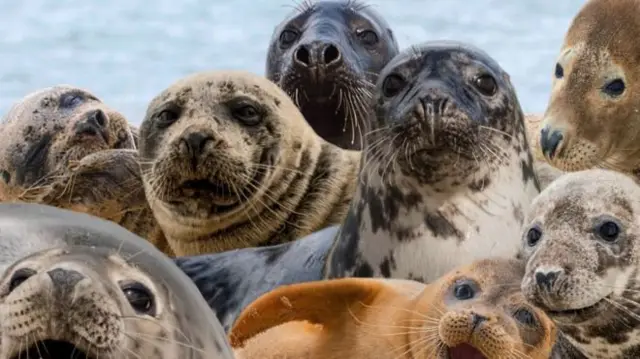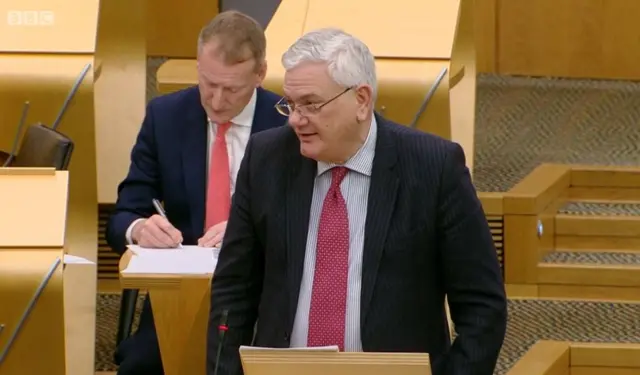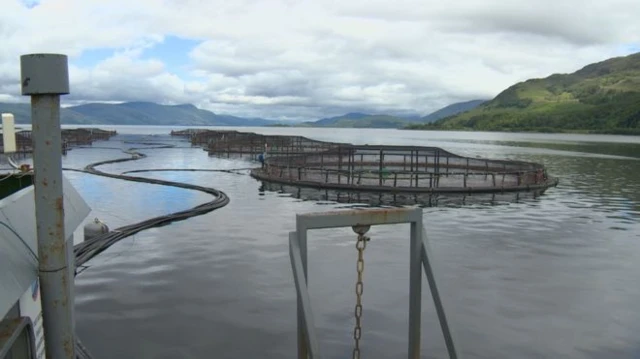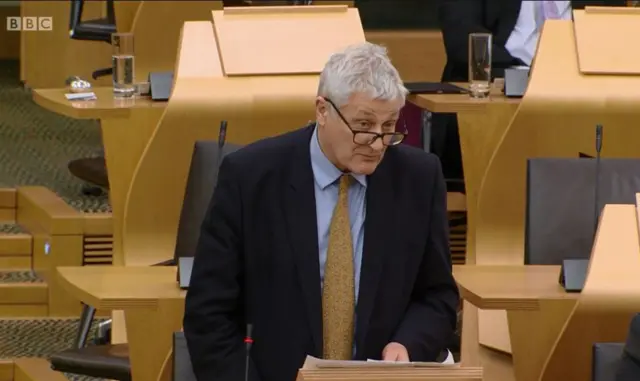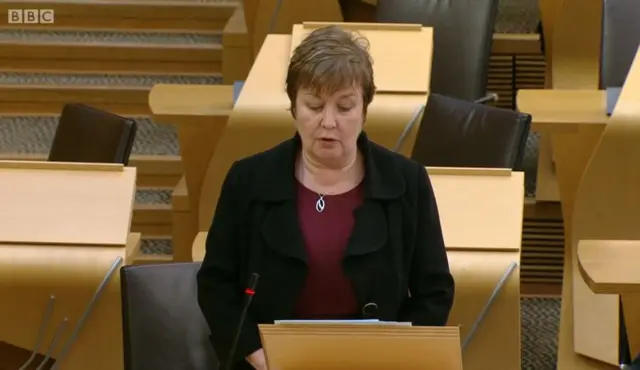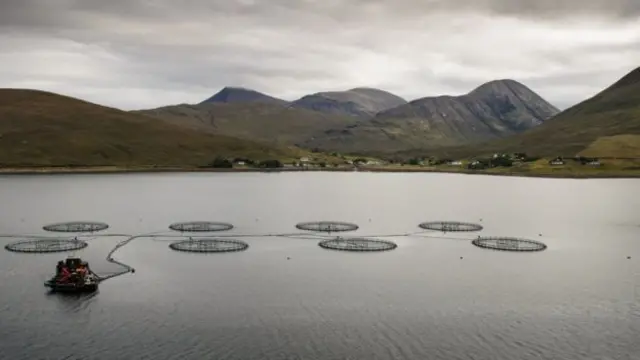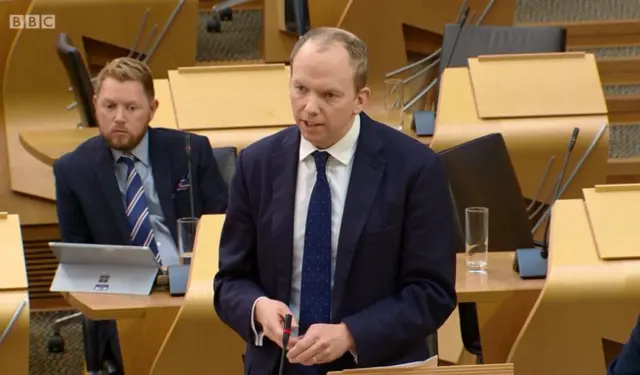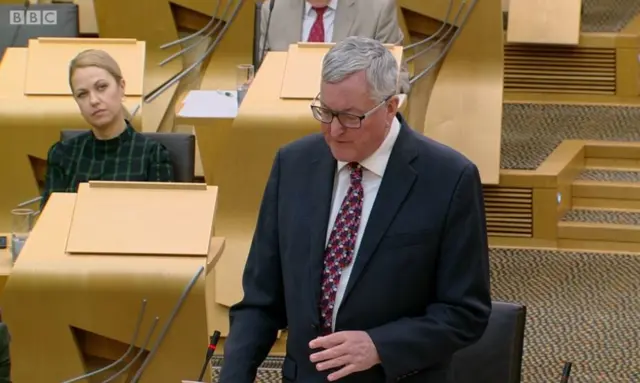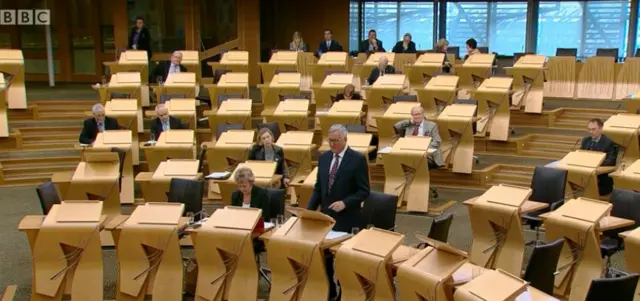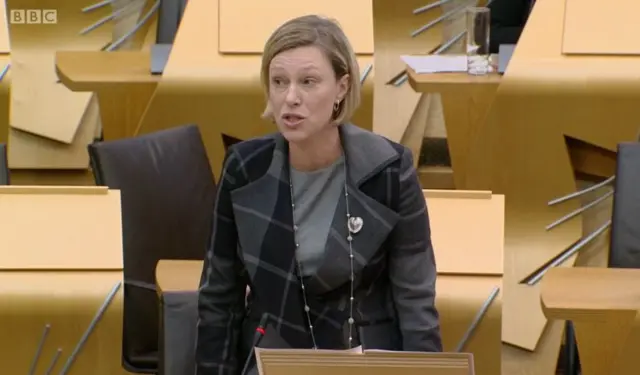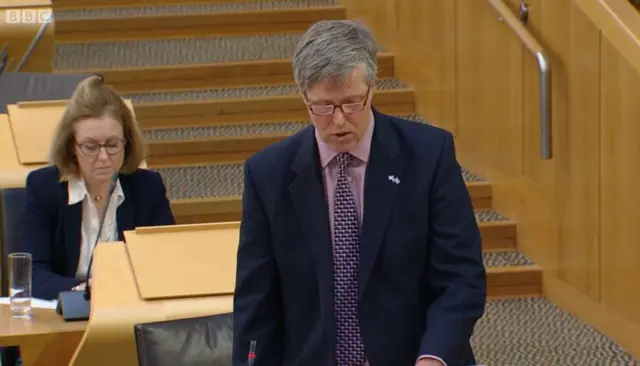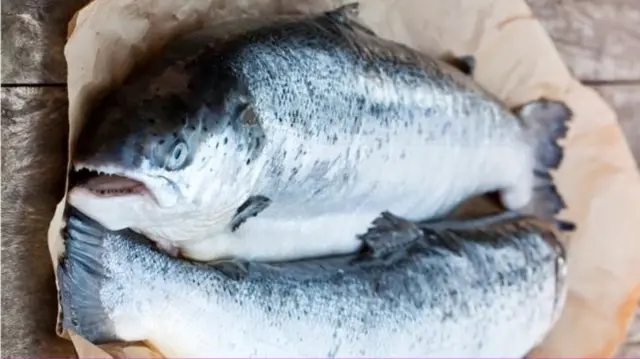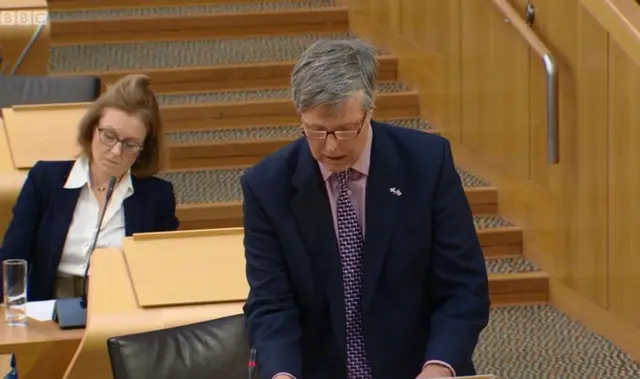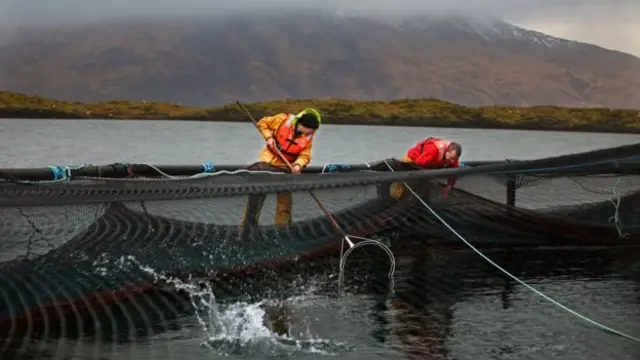Labour MSP disappointed committee ruled out moratorium on new salmon farmspublished at 16:40 GMT 6 February 2019
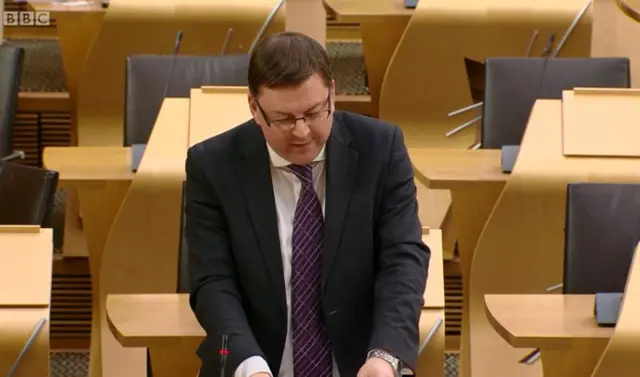 Image source, bbc
Image source, bbcLabour MSP Colin Smyth
Labour MSP Colin Smyth says the government have yet to put in place the necessary regulatory framework to oversee any expansion of salmon farming to protect the environment.
Mr Smyth insists the economic and social benefits of salmon farming were well highlighted, but for these to continue the environmental and animal welfare impacts must be tackled.
He points out mortality rates on salmon farms is 20%.
The Labour MSP says there is still no commitment from the government to make the changes needed.
The current regulatory system has been described as confusing and poorly coordinated he says.
The Labour MSP was disappointed the committee ruled out a moratorium on new salmon farms.
